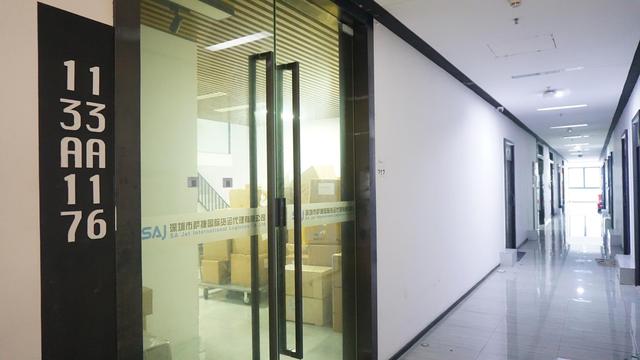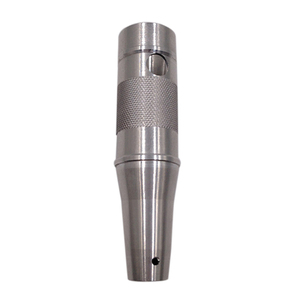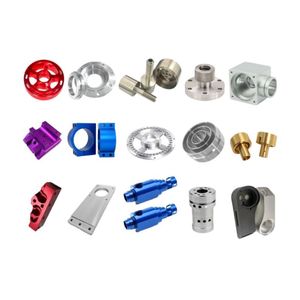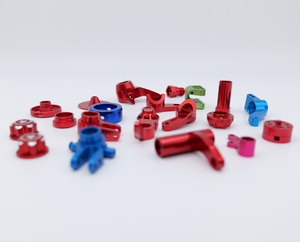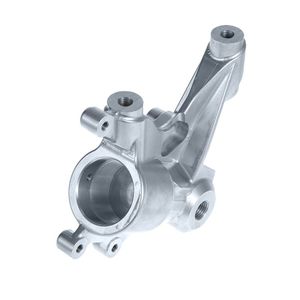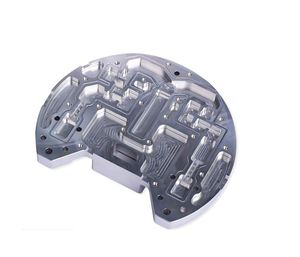Distributed Manufacturing Examples



 Top sponsor listing
Top sponsor listing






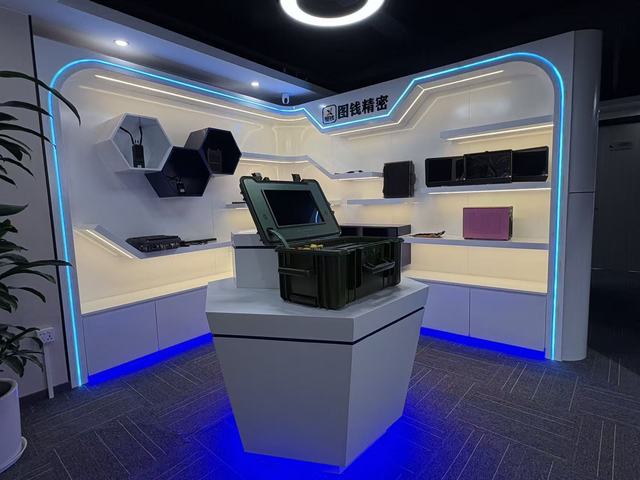










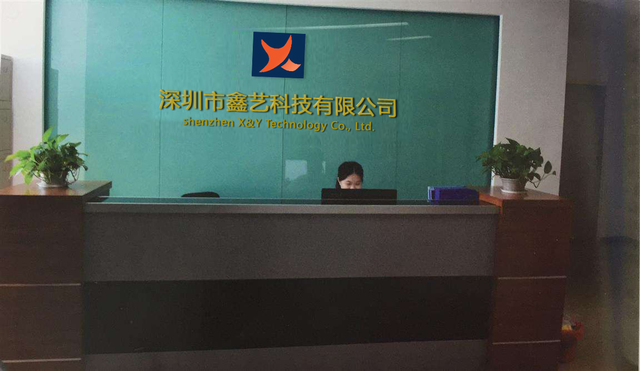






 CN
CN









 CN
CN




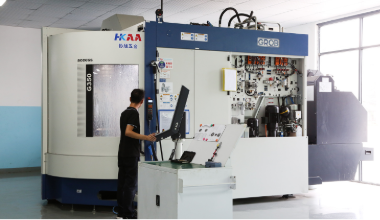












About distributed manufacturing examples
Where to Find Distributed Manufacturing Service Providers?
Distributed manufacturing leverages decentralized production networks to enhance supply chain resilience and reduce lead times. Key supplier clusters are concentrated in China’s Guangdong and Jiangsu provinces, regions known for advanced industrial ecosystems and robust logistics connectivity. Guangdong hosts a high density of precision machining and sheet metal fabrication specialists, supported by mature supply chains for aluminum, stainless steel, and engineering plastics. Jiangsu excels in heavy industrial services, including casting and large-scale CNC machining, benefiting from proximity to raw material sources and deep-water ports that facilitate global export.
These hubs offer integrated manufacturing capabilities with rapid prototyping, batch customization, and multi-modal shipping options (air, sea, trucking). Suppliers typically operate within vertically aligned zones where component sourcing, processing, quality control, and packaging occur within compact geographic radii—reducing coordination delays. Buyers gain access to agile production cycles, with standard lead times ranging from 15–30 days depending on complexity. Localization further enables cost efficiencies: labor and overhead expenses remain 20–35% below Western benchmarks while maintaining compliance-ready output for international markets.
How to Choose Distributed Manufacturing Service Suppliers?
Selecting reliable partners requires structured evaluation across technical, operational, and transactional dimensions:
Technical & Process Compliance
Verify adherence to recognized quality management systems such as ISO 9001. For regulated industries (medical, aerospace, automotive), confirm additional certifications including IATF 16949 or AS9100. Assess documentation practices for material traceability, dimensional inspection reports (CMM), and process validation records. Suppliers serving EU or North American clients should demonstrate RoHS or REACH compliance for applicable materials.
Production Capacity Assessment
Evaluate core infrastructure indicators:
- Facility size exceeding 1,000m² indicating scalable operations
- In-house capabilities covering CNC turning/milling, sheet metal forming, injection molding, and surface finishing
- Dedicated quality control stations with metrology equipment
Cross-reference declared capabilities with on-time delivery performance (target ≥97%) and reorder rates as proxies for client satisfaction and consistency.
Customization & Communication Efficiency
Prioritize suppliers offering comprehensive customization—from design input (CAD/CAM support) to material selection (e.g., brass, aluminum alloys, ABS, stainless steel)—and clear technical drawing interpretation. Response time is a critical indicator of service agility; top-tier providers respond within ≤3 hours. Confirm digital collaboration tools for real-time updates and revision tracking during production runs.
Transaction Security & Export Readiness
Favor suppliers with verifiable transaction histories and established export procedures. Analyze shipment flexibility across LCL, FCL, air freight, and express combinations. Review packaging protocols for fragile or precision components. Where applicable, use secure payment mechanisms tied to milestone verification, especially for initial engagements.
What Are the Leading Distributed Manufacturing Service Providers?
| Company Name | Main Products | On-Time Delivery | Response Time | Reorder Rate | Online Revenue | Customization Options | Shipping Modes |
|---|---|---|---|---|---|---|---|
| Sa Jet International Logistics Co., Ltd. | LCL+Express Air+Express FCL Express LCL+Trucking Air+Trucking | 100% | ≤8h | 33% | US $9,000+ | Container triangulation, material consolidation, overweight local handling | Air, FCL, LCL, Trucking |
| Jiangsu Yiheng Machinery Manufacturing Co., Ltd. | Casting Services, Machining Services | 100% | ≤7h | - | - | Steel machining, bimetallic pipe production | Not specified |
| Huizhou Demao Technology Co., Ltd. | Sheet Metal Fabrication, Machining Services, Moulds | 100% | ≤3h | - | US $100+ | Precision aluminum/stainless steel parts | Not specified |
| Dongguan Tuqian Precision Manufacturing Co., Ltd. | Machining Services, Sheet Metal Fabrication, Moulds | 98% | ≤2h | <15% | US $10,000+ | Brass, stainless steel bending, OEM/ODM | Not specified |
| Xiamen Yistar Precision Manufacturing Co., Ltd. | Injection Molding, Plastic/Rubber Parts | 97% | ≤3h | 39% | US $960,000+ | Color, material, size, logo, packaging customization | Not specified |
Performance Analysis
Suppliers like Sa Jet International and Jiangsu Yiheng achieve perfect on-time delivery records, signaling strong logistics integration and production planning. Xiamen Yistar stands out with a high reorder rate (39%) and substantial online revenue, suggesting consistent quality and customer retention in plastic injection molding. Dongguan Tuqian offers rapid response times (≤2h) and diverse metalworking services but has a low reorder rate, indicating potential gaps in long-term client satisfaction. Huizhou Demao combines fast responsiveness with full customization capacity in aluminum machining, making it suitable for prototyping and low-volume precision runs. For high-volume contracts, prioritize suppliers with proven scalability and third-party verification of facility claims.
FAQs
What materials are commonly used in distributed manufacturing services?
Common materials include aluminum alloys (6061, 7075), stainless steel (304, 316), carbon steel, brass, and engineering plastics such as ABS, PC, and POM. Material selection depends on application requirements for strength, corrosion resistance, weight, and thermal stability.
What is the typical minimum order quantity (MOQ)?
MOQ varies by process and complexity. CNC machining services may accept orders as low as 1 piece, while injection molding typically requires MOQs of 100–500 units due to tooling costs. Some suppliers offer flexible batch sizing for early-stage product development.
How long does production take for custom parts?
Standard lead times range from 10–25 days post-design approval. Rapid prototyping can be completed in 5–7 days using existing tooling. Complex projects involving new molds or specialized finishes may extend to 35 days.
Can suppliers assist with design optimization?
Yes, many providers offer Design for Manufacturability (DFM) feedback, particularly those with in-house engineering teams. Submit STEP or IGES files for analysis on feature feasibility, tolerance stack-up, and cost-reduction opportunities.
Are samples available before bulk production?
Most suppliers provide samples, often at reduced or waived cost if followed by a production order. Expect to cover shipping and partial material charges. Sample lead times average 7–14 days depending on part complexity.
























